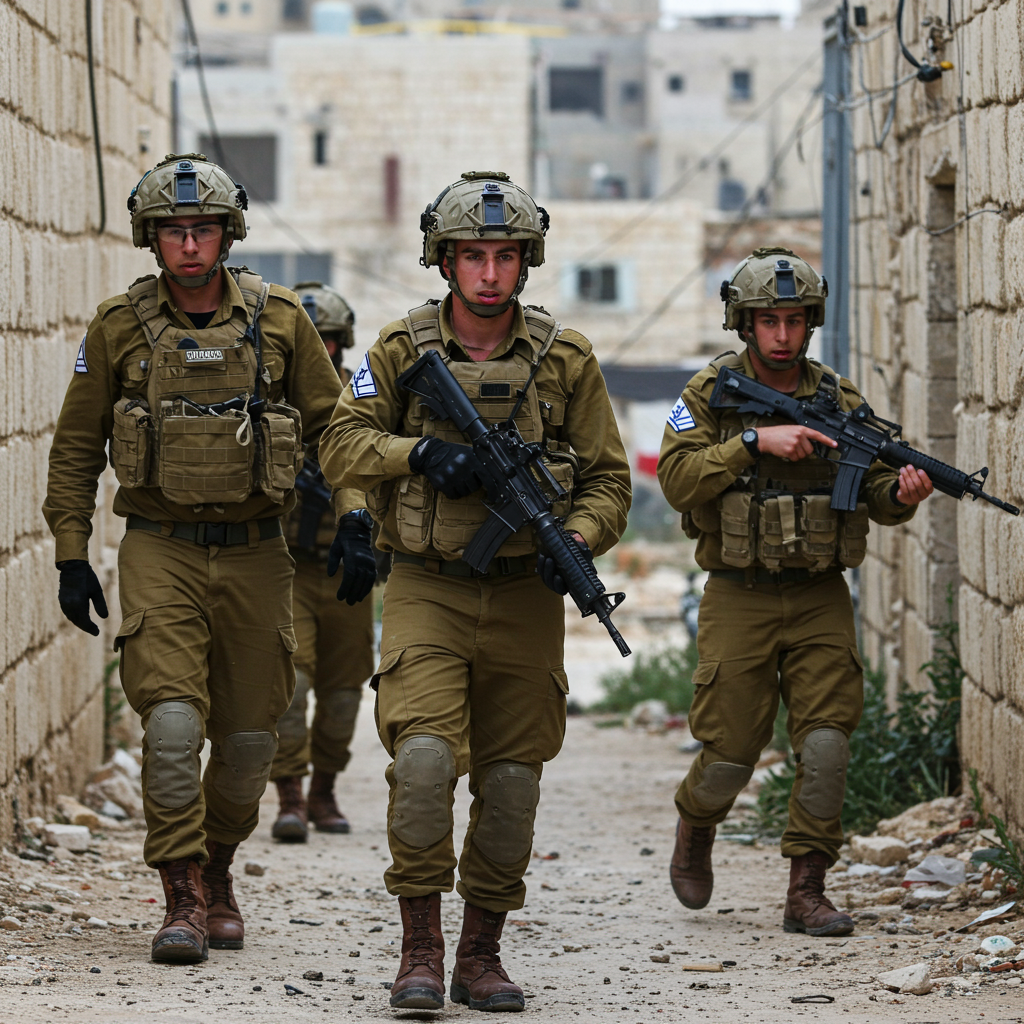A controversial decision to prohibit Israeli soccer fans from attending a high-profile match in the U.K. has ignited a significant political and public outcry. British Prime Minister Keir Starmer has sharply criticized the move, deeming it “the wrong decision” and stressing the imperative to combat antisemitism. This dramatic intervention highlights escalating tensions surrounding sporting events amidst broader geopolitical conflicts and domestic safety concerns.
The Controversial Ban and Immediate Backlash
The Birmingham authorities’ decision, supported by West Midlands Police, banned fans of Israeli team Maccabi Tel Aviv from their upcoming November 6 Europa League fixture against Aston Villa in Birmingham, England. This was quickly labeled a “misstep” by Prime Minister Starmer, who took to social media to declare, “This is the wrong decision. We will not tolerate antisemitism on our streets. The role of the police is to ensure all football fans can enjoy the game, without fear of violence or intimidation.” Starmer’s direct involvement in a football-related issue, typically reserved for major policy, underscored the gravity of the situation. His strong stance reflects a long-standing commitment to eradicating antisemitism within the Labour Party.
Understanding the “High-Risk” Classification
The Safety Advisory Group (SAG) in Birmingham, acting on advice from West Midlands Police (WMP), classified the Aston Villa vs Maccabi Tel Aviv match as a “high-risk” public event. WMP justified this Maccabi Tel Aviv fan ban UK based on “current intelligence and previous incidents.” A key reference point was a 2024 UEFA Europa League match between Maccabi Tel Aviv and Ajax in Amsterdam. That event saw violent clashes and alleged hate crime offenses.
During the Amsterdam incident, Maccabi supporters staged a pro-Israel demonstration. Flares were reportedly lit, and Palestinian flags were torn down amid chants of “death to the Arabs” by some fans. Subsequently, Dutch police reported that local individuals “actively sought out Israeli supporters to attack and assault them.” This led to 62 arrests and five injuries, prompting Israeli Prime Minister Benjamin Netanyahu to label the violence a “premeditated antisemitic attack.” Further concerns stemmed from a March report by an Israeli anti-racism group, cited by Ynet, which identified Maccabi Tel Aviv fans as the most frequent perpetrators of racist chants in their league season. Another incident involving Maccabi Tel Aviv occurred in September 2024, when pro-Palestinian protests outside a game against PAOK in Thessaloniki, Greece, led Greek police to prevent around 120 Israeli fans from entering the venue.
Domestic Tensions and Birmingham’s Unique Context
The decision to block Israeli visiting supporters also comes against a backdrop of heightened tensions in the U.K. Just weeks prior, a deadly terror attack struck a synagogue in Manchester, resulting in the deaths of two Jewish men and serious injuries to three others on Yom Kippur. The suspect, Jihad Al-Shamie, a British citizen of Syrian descent, was killed by police. Separately, a suspected arson attack on a mosque in Peacehaven, southern Britain, is under investigation as a possible hate crime. Birmingham, as the U.K.’s second-largest city, has one of Britain’s largest Muslim populations, approximately 30% according to the 2021 census. This demographic reality, coupled with frequent pro-Palestinian demonstrations in the city, amplifies the potential for major unrest surrounding an Israeli team’s visit.
Independent MP for Perry Barr, Ayoub Khan, welcomed the ban, calling it a “drastic measure” necessitated by “latent safety risks” and potential hostility. He had previously signed a petition advocating for the game’s cancellation, relocation, or being played behind closed doors.
Political Fallout and Calls for Review
Following Starmer’s condemnation, West Midlands Police and Crime Commissioner (PCC) Simon Foster requested an “immediate review” of the Maccabi Tel Aviv fan ban UK by the Safety Advisory Group and West Midlands Police. Foster mandated that the review must determine if the initial decision was “appropriate, necessary, justified, reasonable and a proportionate means.” He also called for consideration of “all and any suitable, alternative options.”
The government has been actively seeking a reversal. Home Secretary Lisa Nandy and Local Government Secretary Steve Reed have engaged with officials, with the Home Office exploring “additional resources and support” to ensure fans can attend safely. A government spokesperson emphasized, “No one should be stopped from watching a football game simply because of who they are.” However, there’s been conflicting information regarding the Home Office’s prior knowledge; the UK Football Policing Unit (UKFPU) stated it briefed the Home Office on potential issues and considerations for a ban, but the Home Secretary “categorically denied” knowing the final decision until it became public. MP Ayoub Khan sharply criticized this political pressure, arguing it “undermines West Midlands Police” and the SAG’s operational assessment, suggesting Starmer was “conflating the Maccabi fans with the Jewish community” when the decision was about preventing “hooligans.”
Legal Challenges and Systemic Issues
The Campaign Against Antisemitism (CAA) has initiated legal action, preparing for a judicial review of the ban. The CAA argues that the prohibition constitutes “direct discrimination against Israelis and/or indirect discrimination against both Israelis and Jews” under the Equality Act 2010. Human rights barrister Adam Wagner KC supported this view, noting that the ban could unlawfully discriminate given that almost all Maccabi Tel Aviv fans are Israeli or Jewish. The Israeli embassy in London echoed this, calling the ban “direct bigotry.”
Beyond this specific incident, the UKFPU has raised broader systemic concerns. They suggest that if the government wishes to treat football matches as “events of national significance,” it needs to change the law to ensure accountability for decision-makers. This follows recommendations from the 2023 Casey Review into the Metropolitan Police and widespread disorder at the 2021 Euro men’s final at Wembley. Rising disorder at UK football matches has strained police resources, leading to calls for clubs to contribute more to policing costs.
Stakeholder Perspectives and the Road Ahead
Reactions to the Maccabi Tel Aviv fan ban UK have been varied. Maccabi Tel Aviv’s CEO expressed “dismay,” while fans in Tel Aviv criticized the decision as “all about politics.” Conversely, some Aston Villa fans interviewed prioritized local safety, largely agreeing with the ban. UEFA, European football’s governing body, typically defers to local authorities on safety assessments, even when it means overriding the usual away fan allocation rules (5% capacity). The controversy has even cast doubt on Villa Park’s suitability as a host for Euro 2028 fixtures.
The situation remains fluid. The intense government pressure and the ongoing review by the PCC and SAG suggest a potential reversal is highly likely. However, authorities also acknowledge the risk of banned fans still traveling and causing trouble outside the stadium, a concern highlighted by past incidents like the Legia Warsaw disorder at Villa Park. The ultimate resolution will need to balance public safety, anti-discrimination principles, and the integrity of international sporting events, all while navigating a complex political and social landscape.
Frequently Asked Questions
Why was the ban on Maccabi Tel Aviv fans initially implemented by Birmingham authorities?
Birmingham authorities, in conjunction with West Midlands Police (WMP), implemented the ban due to classifying the upcoming Aston Villa vs Maccabi Tel Aviv match as “high-risk.” This assessment was based on “current intelligence and previous incidents,” particularly violent clashes during a 2024 match in Amsterdam involving Maccabi Tel Aviv fans and a history of alleged racist chants by their supporters. Furthermore, the decision considered heightened tensions in the U.K. following recent hate crimes and Birmingham’s significant Muslim population, which could lead to large-scale protests and counter-protests.
Who is currently reviewing the decision to ban Maccabi Tel Aviv fans, and what are the next steps?
West Midlands Police and Crime Commissioner (PCC) Simon Foster has ordered an “immediate review” of the ban by the Safety Advisory Group (SAG) and WMP. The review aims to determine if the initial decision was “appropriate, necessary, justified, reasonable and a proportionate means.” The UK government, including Prime Minister Keir Starmer and various secretaries, is also actively engaged in discussions, exploring options for additional resources and support to allow fans to attend safely. A review meeting is anticipated early next week, and a reversal is considered likely due to significant political pressure.
What are the broader implications of this type of fan ban for football and international relations?
This Maccabi Tel Aviv fan ban UK raises significant concerns about discrimination, freedom of movement, and the intersection of sports with geopolitical conflicts. Legal groups like the Campaign Against Antisemitism are challenging it as potential direct discrimination, setting a precedent for similar situations. Such bans can be seen as punishing victims or specific communities, undermining the unifying spirit of sport. It also highlights the strain on police resources for “high-risk” events and calls for potential legislative changes to formalize government responsibility and accountability for safety decisions at such events, impacting future international fixtures and fan experiences.



